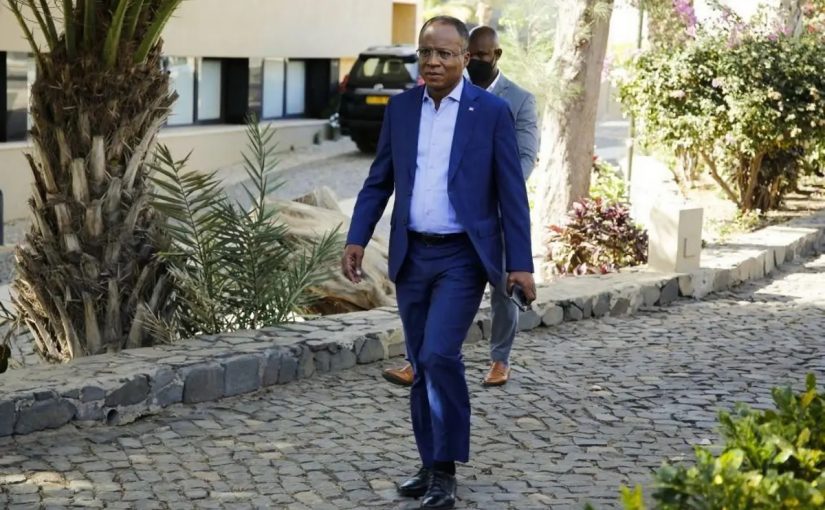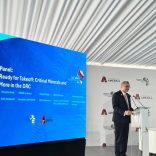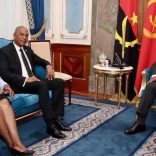US envoy plays down Africa tariff, visa concerns, reaffirms Lobito rail commitment
Cabo Verde: PM calls for ‘single African position’ at UN climate conference

Picture: Lusa
The Prime Minister of Cabo Verde, Ulisses Correia e Silva, on Wednesday called for “global answers” to the effects of climate change and a “single African position” at the 26th UN Conference on Climate Change (COP26).
Speaking at the opening of the 9th Conference on Climate Change in Africa, held in the city of Santa Maria, Sal Island, the PM started by pointing out several effects of climate change, especially in the African areas south of the Sahel.
He stressed that the pandemic has shown the serious global impacts of climate change, understanding that they can only be mitigated and reduced with prevention, regulation and global response mechanisms.
“This approach, obviously, does not remove responsibility from each country individually, but rather amplifies the responsibilities, to place them at the level of the planet and of commitments to future generations,” he stressed.
He considered that, for African countries, this conference is an “important step” in the preparation of COP26 that will gather world leaders in Glasgow, Scotland, between 31 October and 12 November.
“We should use the debate in these two days in Santa Maria to prepare elements of a single African position. To constitute a strong, clear and unified voice in Glasgow, because this COP26 will only be a success if Africa is at the centre of the negotiations,” he said.
After Scotland, next year it will be Africa’s turn to host COP27, which will take place in November 2022 in Egypt. “The success of COP26 will give Africa the necessary impetus to prepare for the next COP,” he said.
The African continent has an “indispensable role” in global efforts to reduce greenhouse gas emissions and limit global warming to 1.5 degrees Celsius.
“Africa is a crisis taker. It is the continent that produces the least greenhouse gas emissions – 4% of the total – but which suffers the most the consequences of climate change,” Correia e Silva stressed, for whom the energy and industrial needs that Africa suffers must be met by clean, efficient and environmentally friendly technologies.
“The massification of renewable energy is a great industrial and job creation opportunity. Africa has abundant renewable resources,” he insisted.
“Climate finance must be up to the challenges and its access must be facilitated through bilateral and multilateral channels,” he said, adding that he also called for external debt relief for developing countries and those in the Sahel region of Africa to be treated as a “priority”.
In relation to Cabo Verde, the prime minister said that climate change was a “real threat” to the archipelago and re-stated the target of reaching 30 percent of electricity production from renewable sources by 2025, exceeding 50 percent in 2030 and reaching 100 percent in 2040.
He also said that the country aims to achieve 100 percent electric mobility in 2040, starting by replacing 25 percent of the road public transport fleet with electric vehicles by 2026.
The 9th Conference on Climate Change in Africa brings together over a thousand participants in a hybrid format, virtual and face-to-face, and is organised jointly by the Government of Cabo Verde and the United Nations Economic Commission for Africa (UNECA).












Leave a Reply
Be the First to Comment!
You must be logged in to post a comment.
You must be logged in to post a comment.